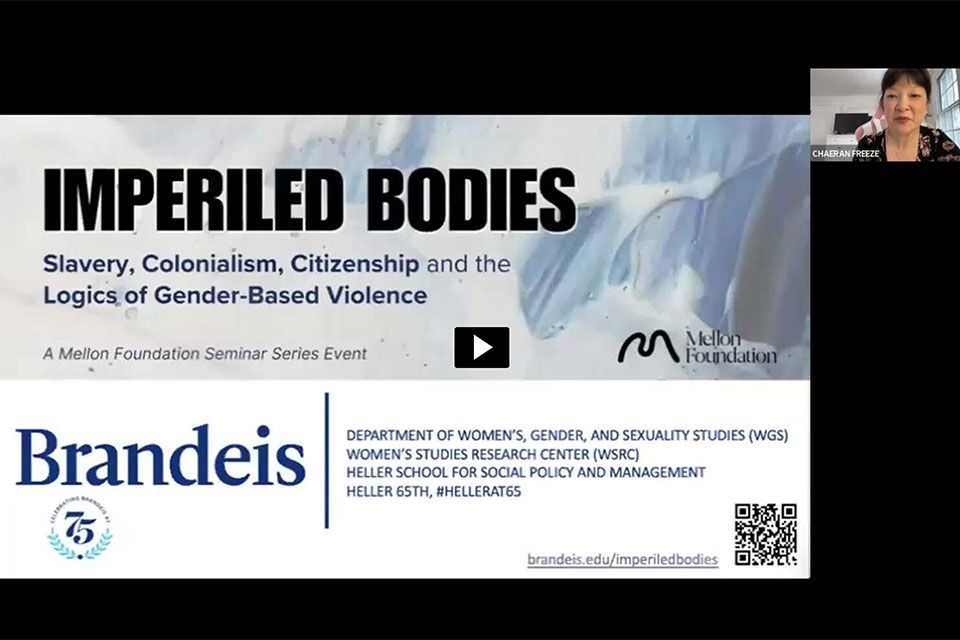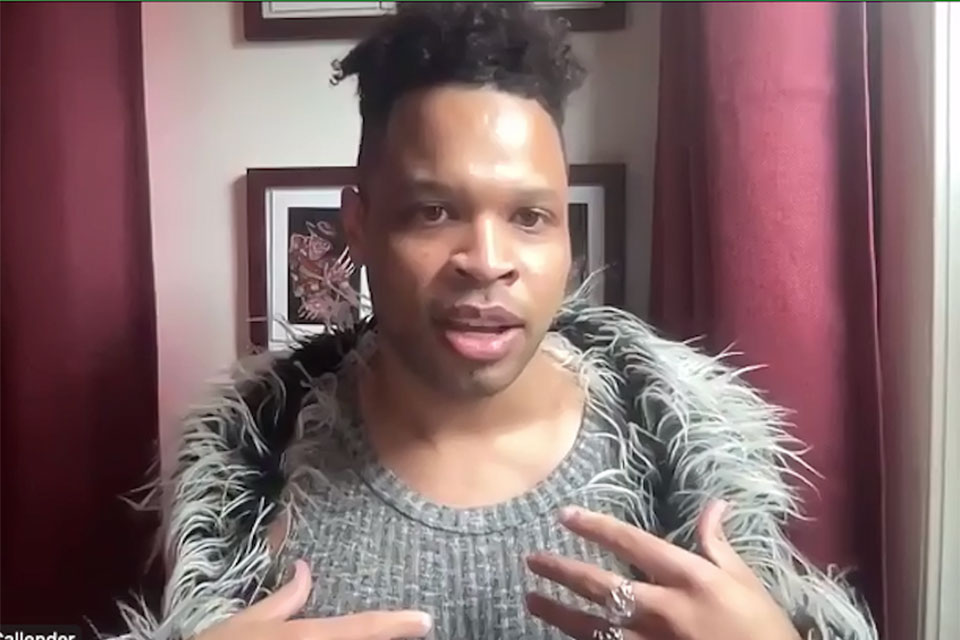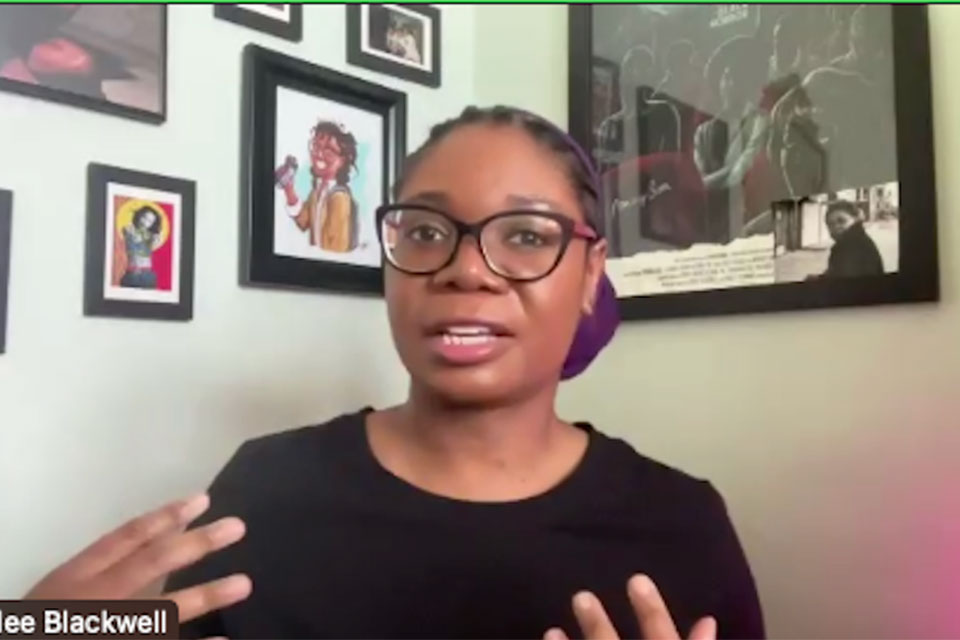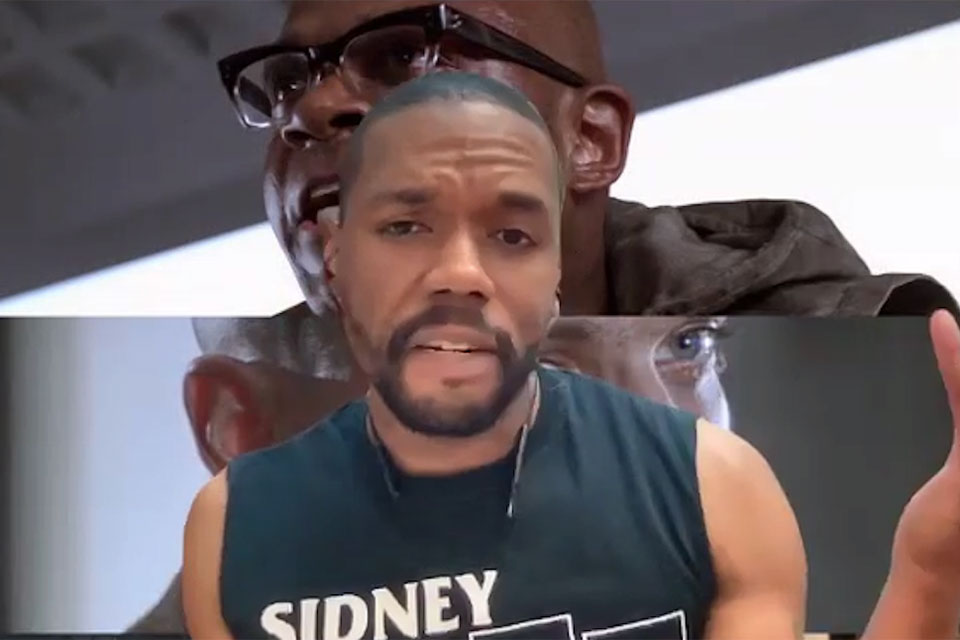Black Horror on Screen: Representing Racialized and Gendered Violence
On April 4, 2024, the Mellon Sawyer Seminar hosted the session “Remake, Resist, Rewind: Surviving the Horror Film,” organized and moderated by Brandon Callender (Assistant Professor of English, Brandeis University). The session featured guest speakers Ashlee Blackwell (Wellenreiter), co-writer and producer of "Horror Noire: a History of Black Horror" and founder of Graveyard Shift Sisters, and Justin Phillip Reed, poet and author of "The Malevolent Volume" and the hybrid collection "With Bloom Upon Them And Also With Blood: A Horror Miscellany." Discussing a range of horror subgenres (slasher, vampire, extraterrestrial) and motifs (final girl, scream queen), and responding to the contemporary boom in horror film franchise reboots, the session asked what it means to both represent and consume racialized, gendered, and sexualized violence on screen, particularly for Black creators and viewers in an age of new black horror content and franchise reboots.
A resounding takeaway was that being a Black horror fan is complicated. Horror films blur the line between pleasurable entertainment and trauma, and this applies whether or not they explicitly thematize social issues such as enslavement, lynching, rape, stalking, mass shootings, and microaggressions that risk triggering or retraumatizing Black viewers. Callender began by explaining, for example, that the horror motif of the final girl (the last person to survive, usually white) participates in a long cinematic pattern of depicting the racialized other as a sexual threat to white women. Films such as "Birth of a Nation" (1915) and "King Kong" (1933) invoke the fiction of a Black sexual threat as a historical justification for lynching, as Robin R. Means Coleman and Ashlee Blackwell have elsewhere demonstrated. So, even as many fans celebrate the arrival of Black final girls, the motif itself is inextricable from white supremacist patterns of representation.
At the same time, it is deeply important for Black horror fans to see themselves represented onscreen. Blackwell, whose stated website mission on Graveyard Shift Sisters is to “Purg[e] the Black Female Horror Fan From the Margins,” emphasized that structural invisibility onscreen and off is a pressing issue. Horror has its own internal logics wherein fans expect gore, and so for Black women characters to negotiate violence or even die spectacularly is a meaningful form of inclusion. Blackwell gave the contemporary example of Mariama Diallo’s "Master" (2022), which depicts a dark-skinned Black woman professor (played by Regina Hall) at an elite university navigating an onslaught of violences from microaggressions to hate crimes. The film is impactful in part because it affirms and makes visible a host of real-world vulnerabilities, using devices from the horror genre to tell a complex story of Black women’s experiences in predominantly white institutions.
Complicating the conversation further is that, as Reed emphasized, these representations circulate within a capitalist marketplace. As he puts it in the titular essay from his collection :With Bloom Upon Them And Also With Blood,: “Black peril is a problem commodity” (154). Particularly in the context of films like "The First Purge" and other “elevated horror” films that Reed links to studio A24, racialized violence abounds as profitable spectacle. Horror may have its own logics where, as Robin R. Means Coleman and Mark H. Harris put it, “getting a good death” is worth celebrating ("The Black Guy Dies First 40"), but the weight of history still bears down upon these representations. Indeed, what Callender identified as a general trajectory in horror film franchise reboots from camp to satire to serious means that themes of racial and sexual violence and intergenerational trauma are increasingly at the fore, raising ethical questions about the implications of paying to engage with visions and histories of Black suffering.
As horror film franchises increasingly tackle social issues head on, Black creators and fans are actively debating how to balance horror’s entertainment value with the social harms it can activate. Gathering leading critical-creative experts on Black horror, this session was a testament to the heterogeneity of these conversations.
Posted by Carmel Ohman, June 13, 2024
This event was part of the year-long Mellon Sawyer Seminar, “Imperiled Bodies: Slavery, Colonialism, Citizenship and the Logics of Gender-Based Violence” led by PI Anita Hill, co-PI Harleen Singh, and ChaeRan Freeze at Brandeis University. Brandeis University sponsors and resources include the Heller School for Social Policy and Management, the Department of Women’s, Gender, and Sexuality Studies, the Women’s Studies Research Center, the Mandel Center for the Humanities, the Hadassah Brandeis Institute, the Feminist Sexual Ethics Project, the Rose Art Museum, the Kniznick Art Gallery, the Gender and Sexuality Center, and the Prevention, Advocacy, and Resource Center. This seminar is among the signature events of the Heller 65th Anniversary year, Celebrating Knowledge Advancing Social Justice #Hellerat65.



